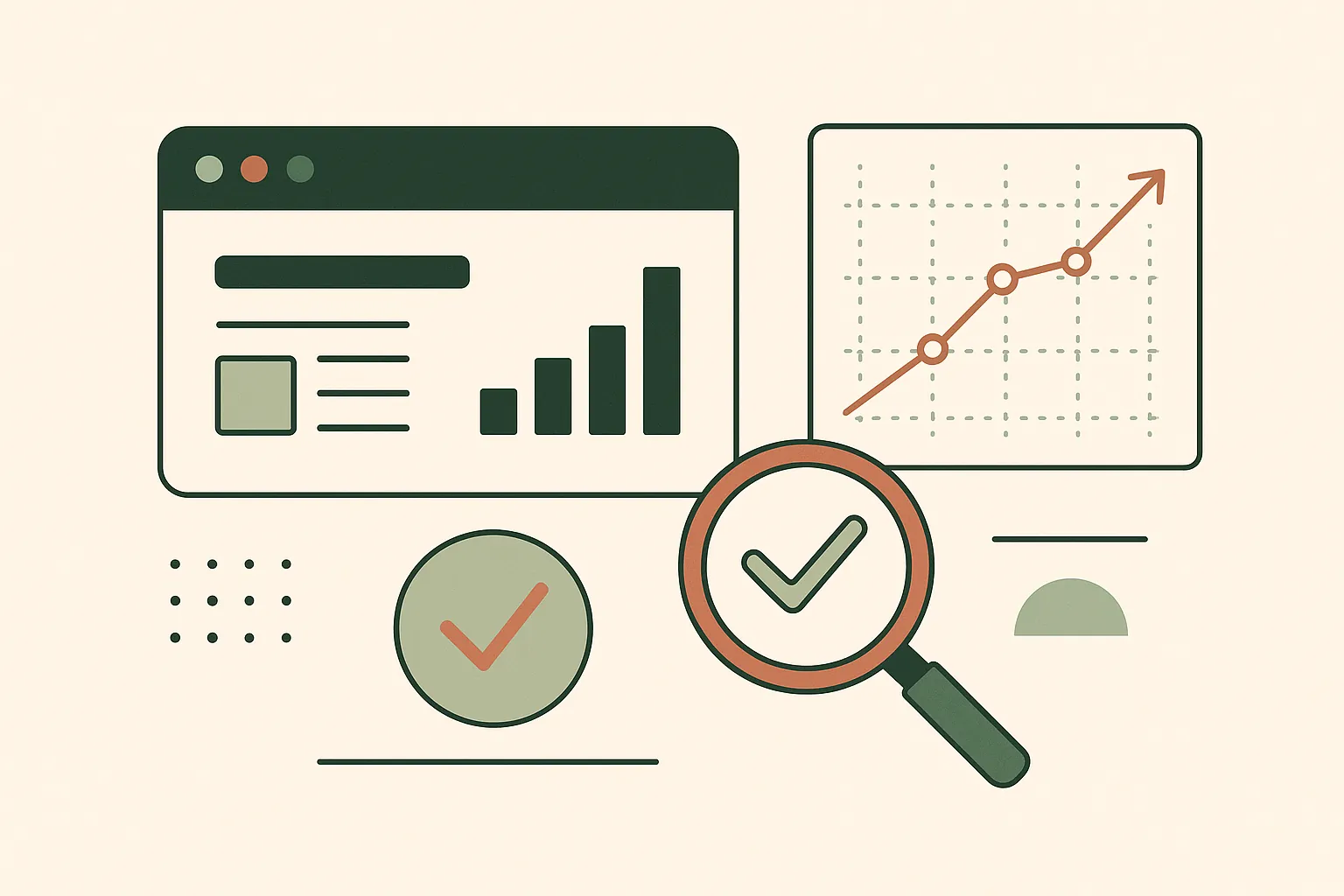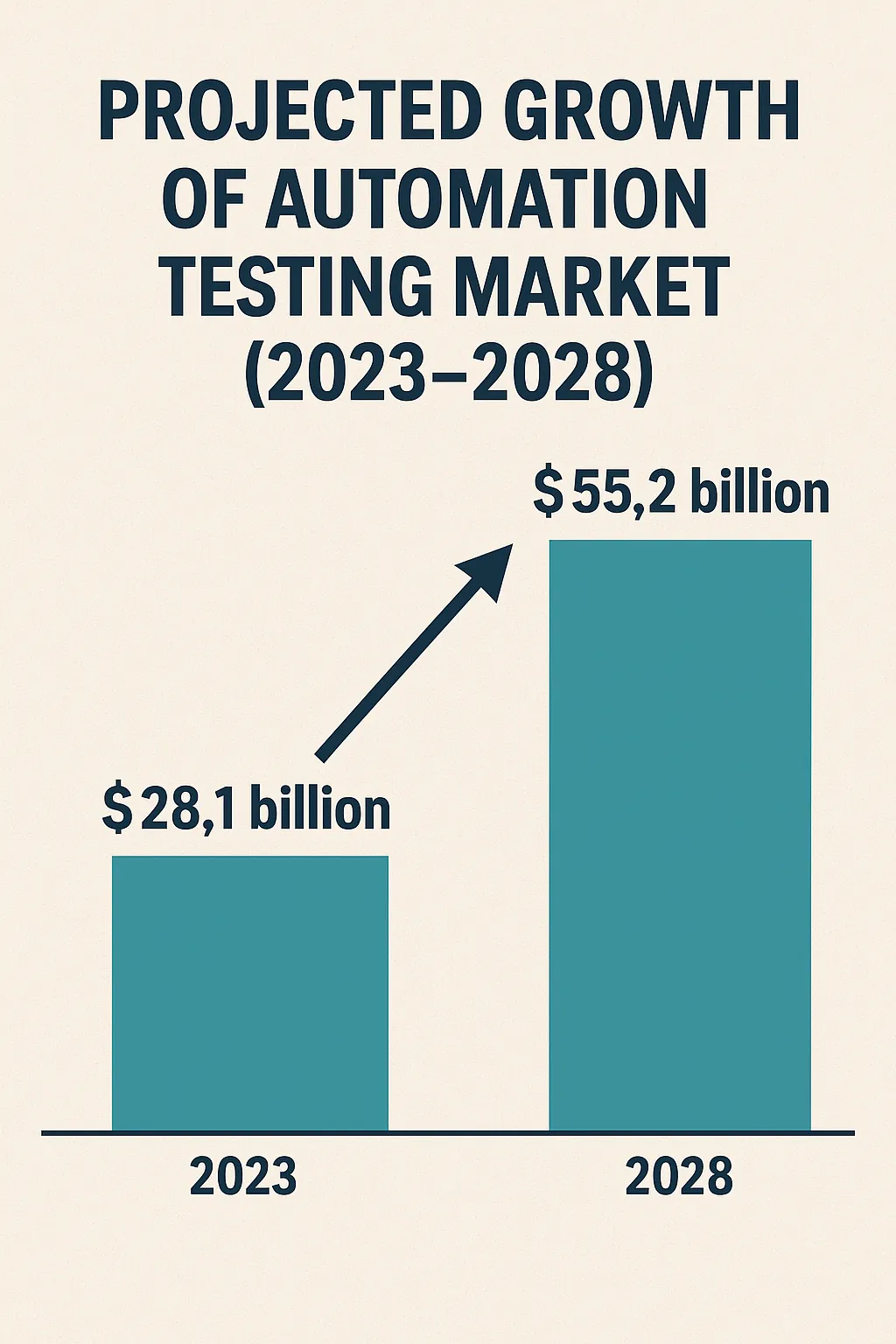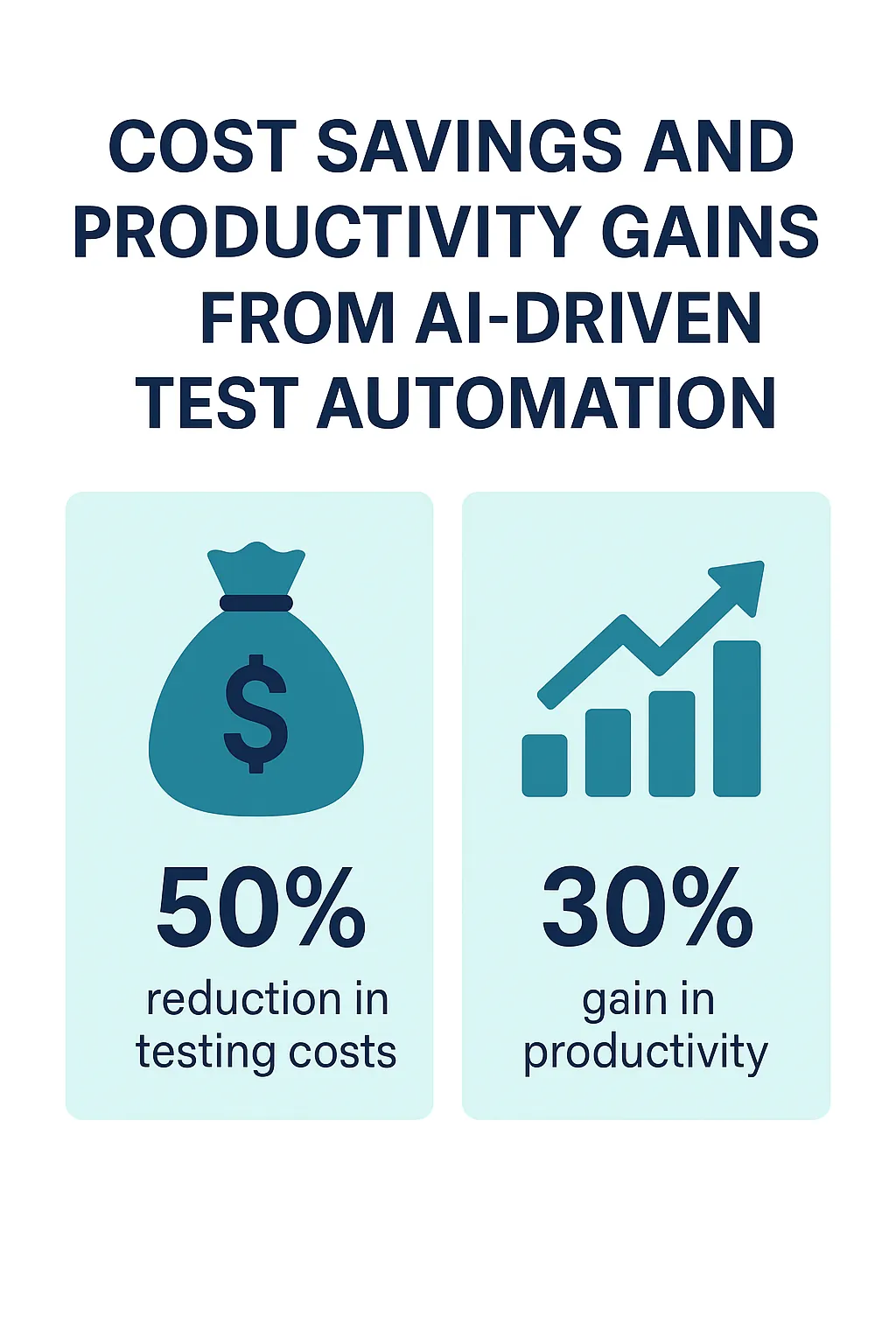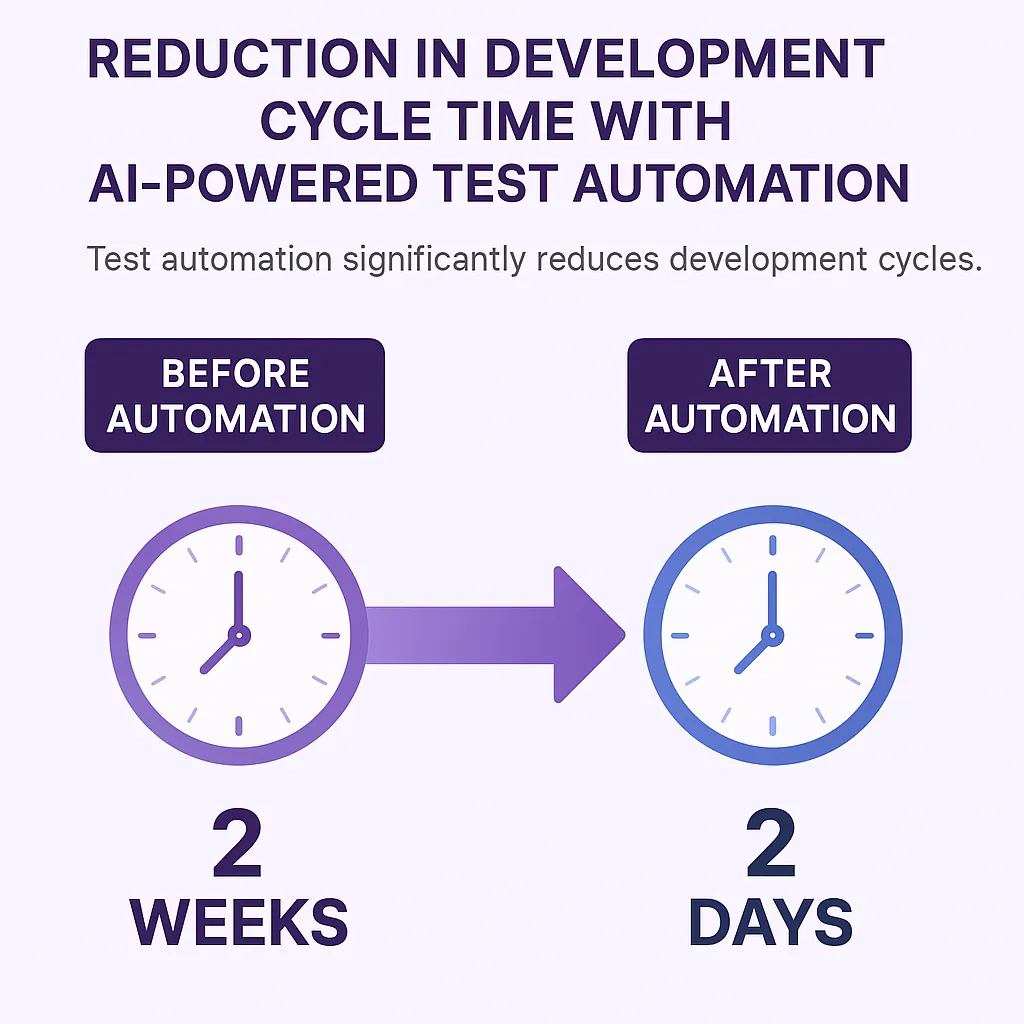
Test Automation by the Numbers: How Data-Driven Strategies Maximize Quality and Speed
The Importance of Data-Driven Decisions in Testing
In today’s rapidly evolving software development landscape, making informed, data-driven decisions in testing is paramount. Leveraging empirical data not only enhances software quality but also optimizes resource allocation and accelerates time-to-market. As organizations strive for agility and efficiency, understanding the quantitative impact of test automation becomes essential.
The State of Testing: Current Market Data on Test Automation Adoption
The test automation market is experiencing significant growth. Valued at approximately $28.1 billion in 2023, it’s projected to reach $55.2 billion by 2028, growing at a CAGR of 14.5%. This surge is driven by the escalating importance of delivering outstanding user experiences and the widespread adoption of Continuous Integration and Continuous Deployment (CI/CD) practices. MarketsandMarkets
Regionally, North America holds a substantial market share, while the Asia-Pacific region is witnessing the fastest growth, nearing a 25% CAGR. The demand for seamless functionality across diverse devices and platforms propels the adoption of automation testing tools globally.

ROI Analysis: Average Cost Savings Through Test Automation
Implementing test automation can lead to substantial cost savings. Companies integrating AI into their testing processes have reported up to a 50% reduction in testing costs and a productivity gain of up to 30%. Automation leaders were able to reduce the cost of processes by 22% in 2023, whereas lagging companies managed only 8%. Bain
These savings stem from reduced manual testing efforts, faster test execution, and early detection of defects, which collectively minimize rework and associated costs.

The Quality Dividend: Improvement of Software Quality Through Automated Tests
Automated testing enhances software quality by increasing test coverage and accuracy. AI-driven test automation can dynamically generate test cases, identify high-risk areas in the codebase, and adapt to changes, leading to more reliable software releases. According to a study, 55% of companies adopt automated testing strategies primarily to improve product quality. QA.tech
Furthermore, automation reduces human error, ensures consistency in test execution, and facilitates continuous testing, all contributing to higher software quality.
Time-to-Market: Impact of Test Automation on Development Cycles
Test automation significantly reduces development cycles. By enabling continuous testing and integration, organizations can detect and address issues earlier, leading to faster product releases and improved competitiveness in the market. AI-powered tools further accelerate this process by automating test case generation and maintenance.
For instance, before automation, a test cycle might take 2 weeks; after automation, it can be reduced to 2 days. This acceleration allows teams to respond swiftly to market demands and reduces the time between development and deployment.

The Automation Gap: Areas That Remain Untapped Despite Potential
Despite the benefits, certain areas remain under-automated. Challenges such as complex test scenarios, lack of skilled personnel, and resistance to change contribute to this gap. Addressing these challenges requires targeted strategies and investment in training and tool adoption.
A recent study highlights significant delays in software deployments, with over 80% of businesses affected and an average delay of 3.8 months. Key issues include widespread IT skills shortages—impacting 87% of teams—underinvestment, and insufficient automation capabilities. [IT Pro]
Conclusion: Data-Driven Recommendations for Your Test Strategy
Embracing data-driven test automation strategies is essential for organizations aiming to enhance software quality and accelerate delivery. By investing in AI-powered tools like Kiteto, businesses can achieve significant cost savings, improve product reliability, and maintain a competitive edge in the market.
To maximize the benefits of test automation, organizations should:
- Assess current testing processes and identify areas for automation.
- Invest in training and upskilling teams to handle advanced automation tools.
- Continuously monitor and analyze testing metrics to inform decision-making.
By adopting a strategic, data-driven approach, organizations can navigate the complexities of modern software development and deliver high-quality products efficiently.